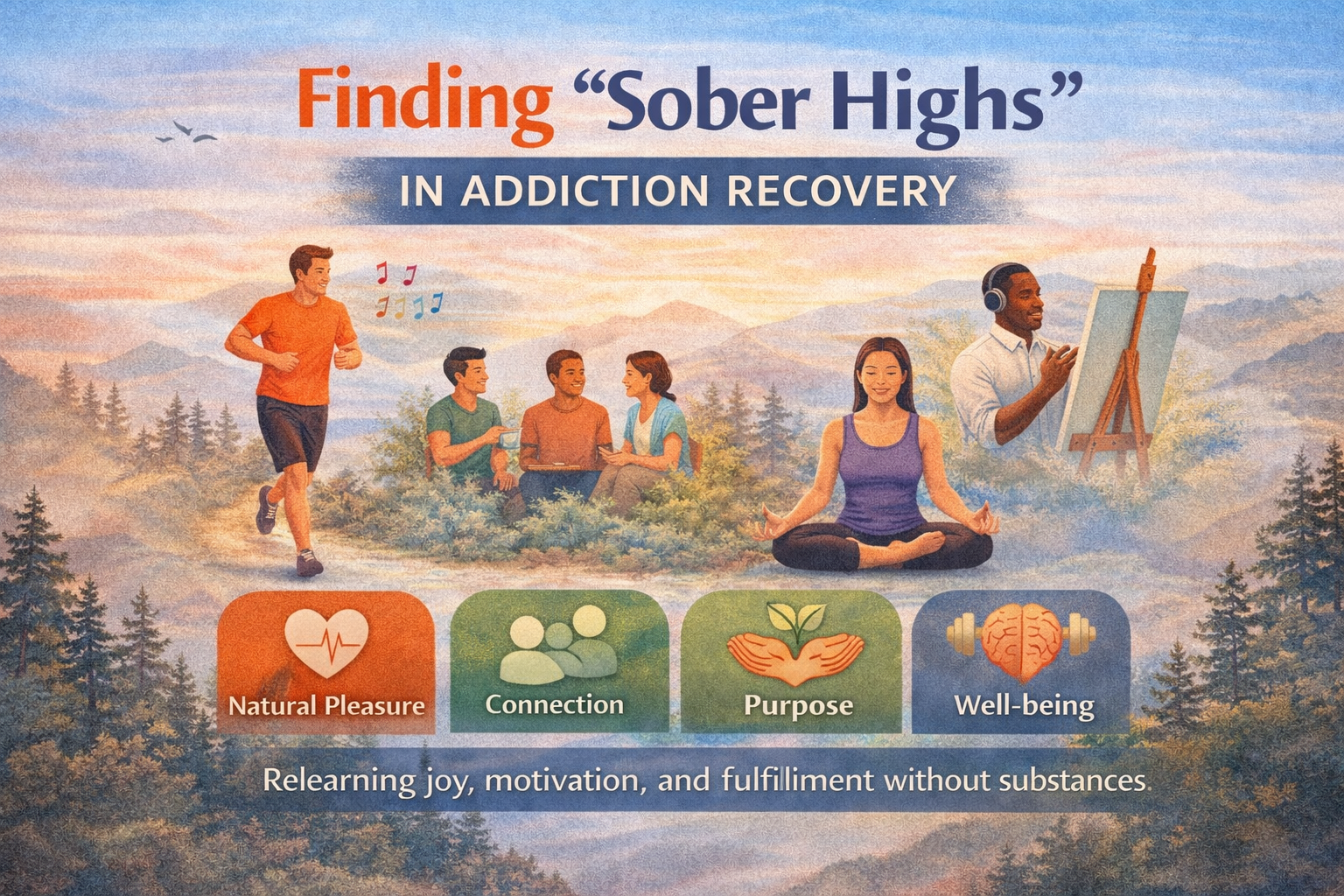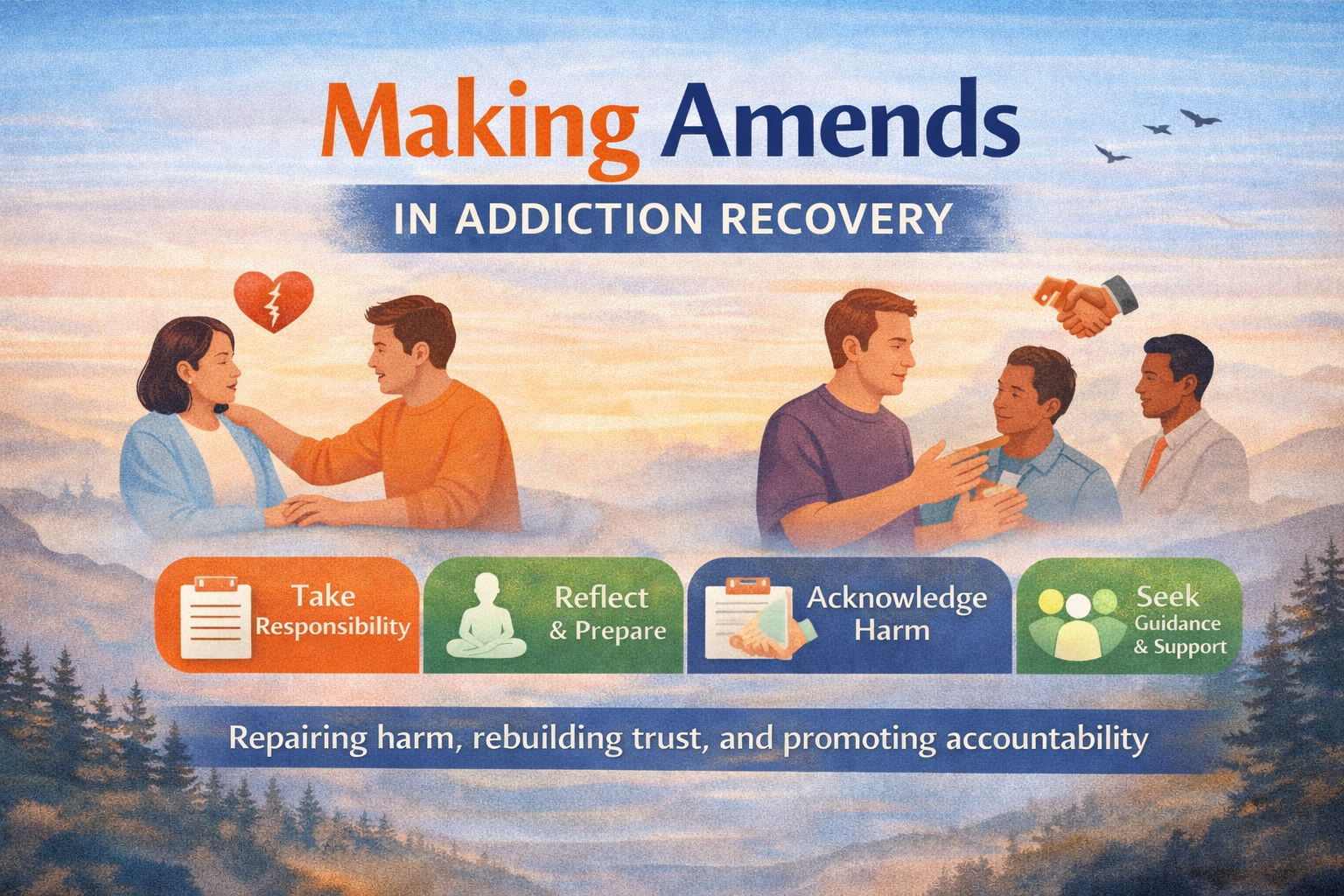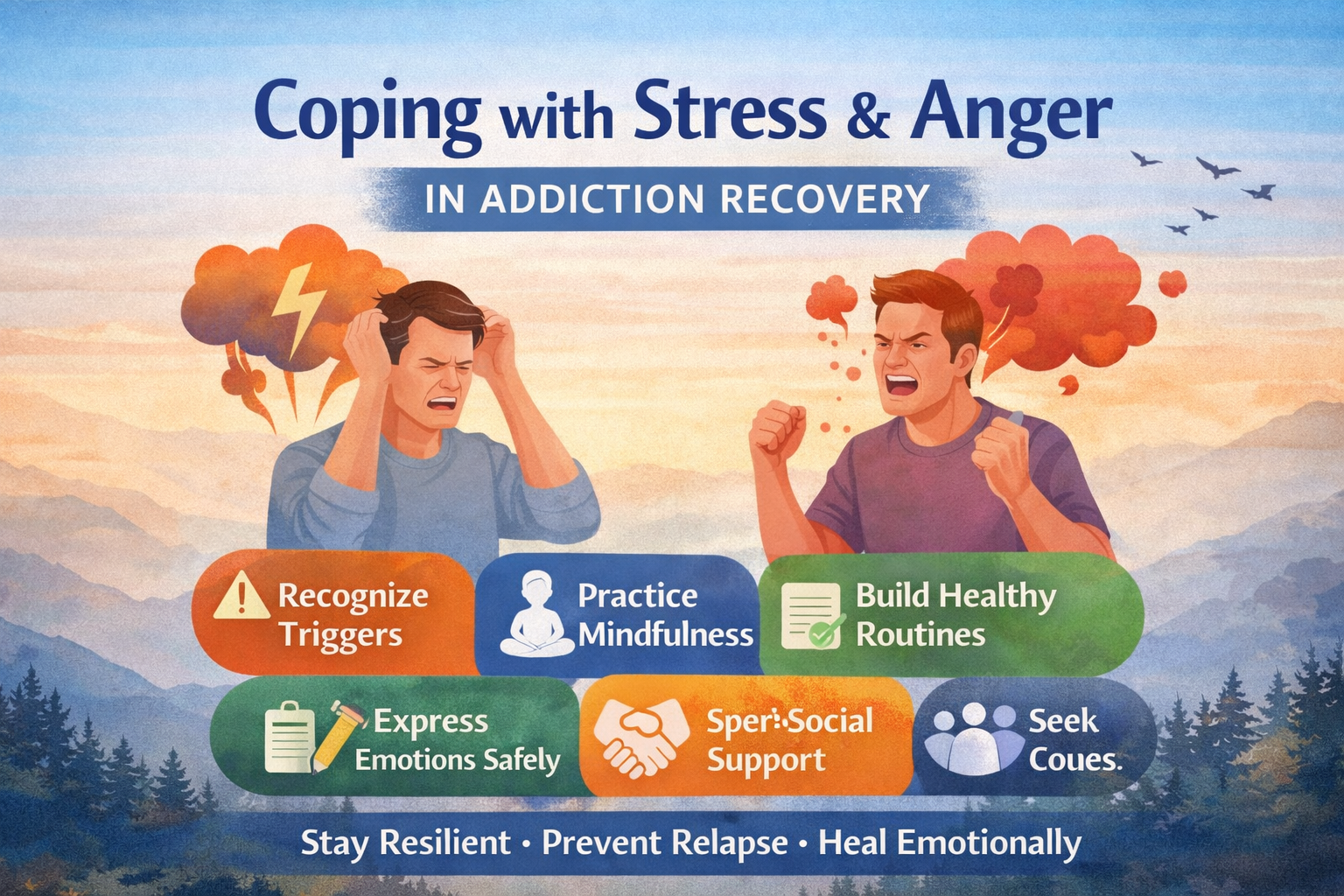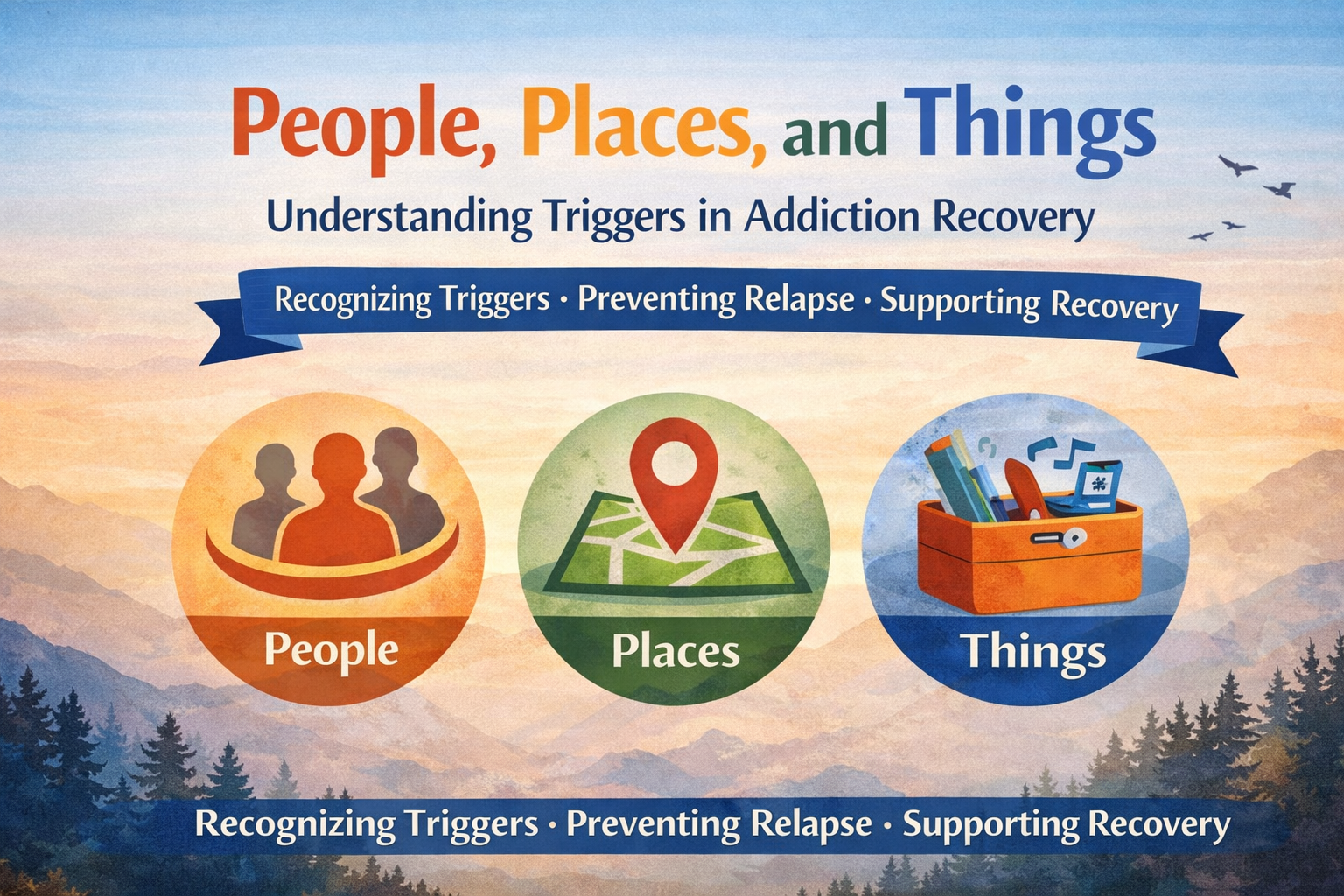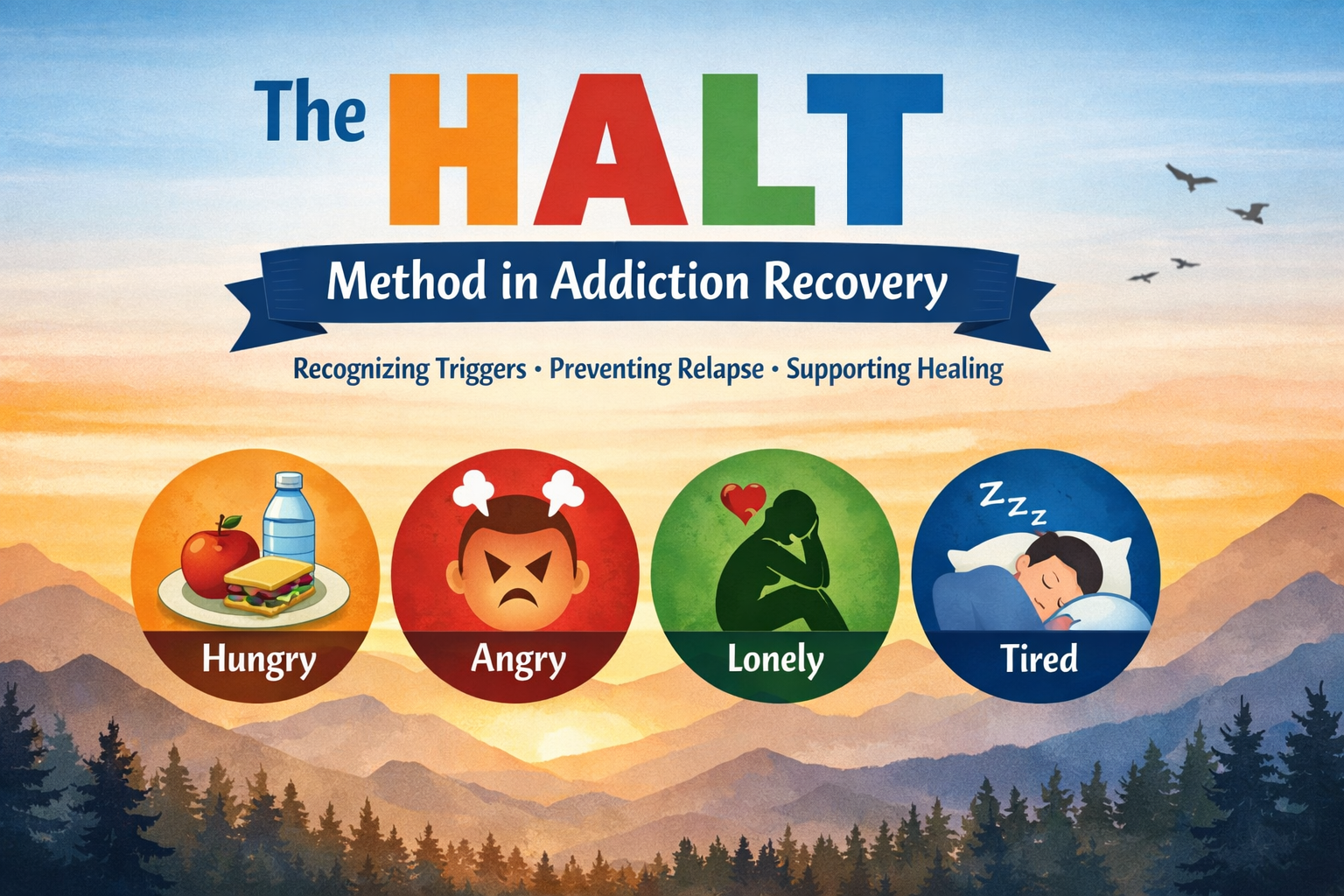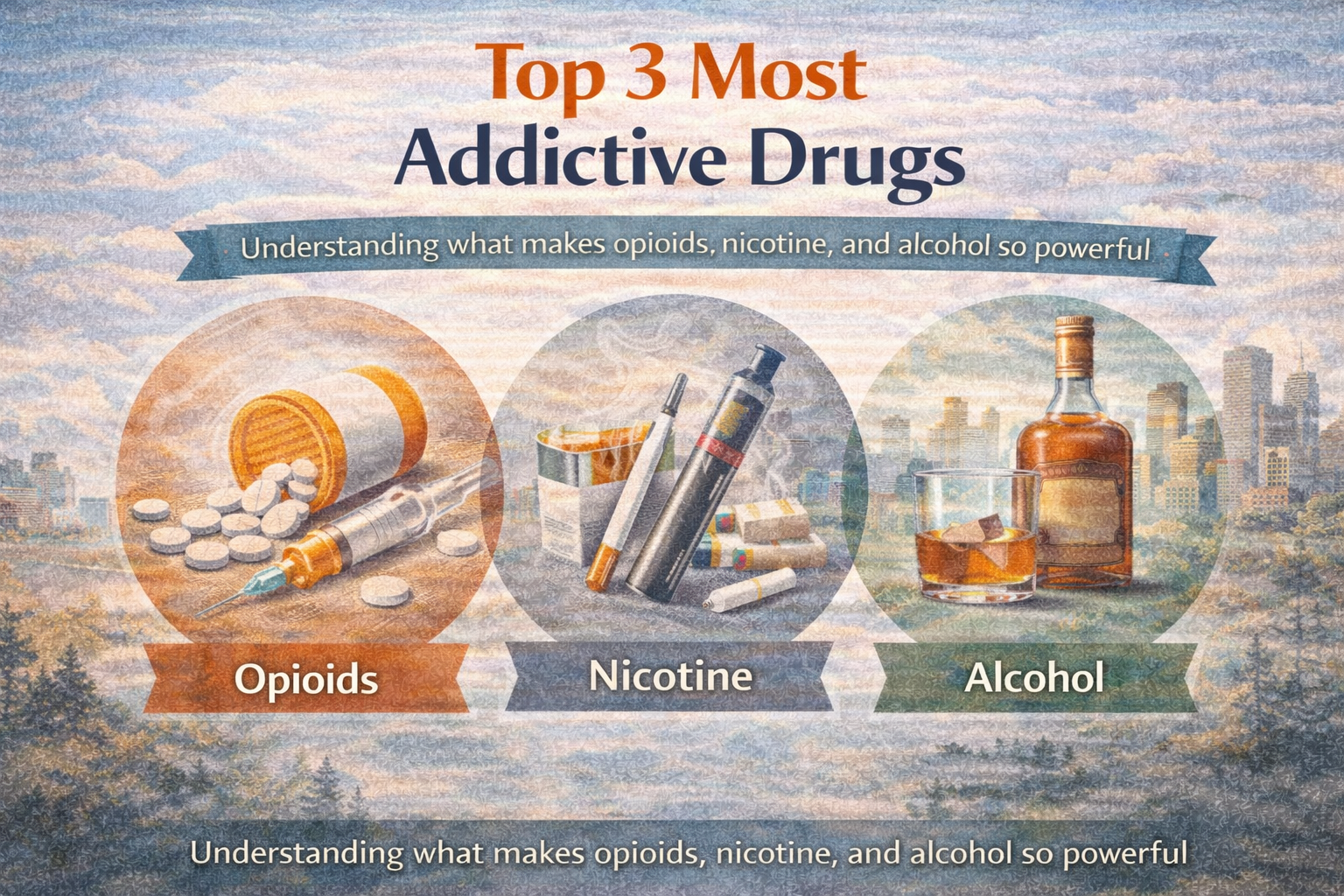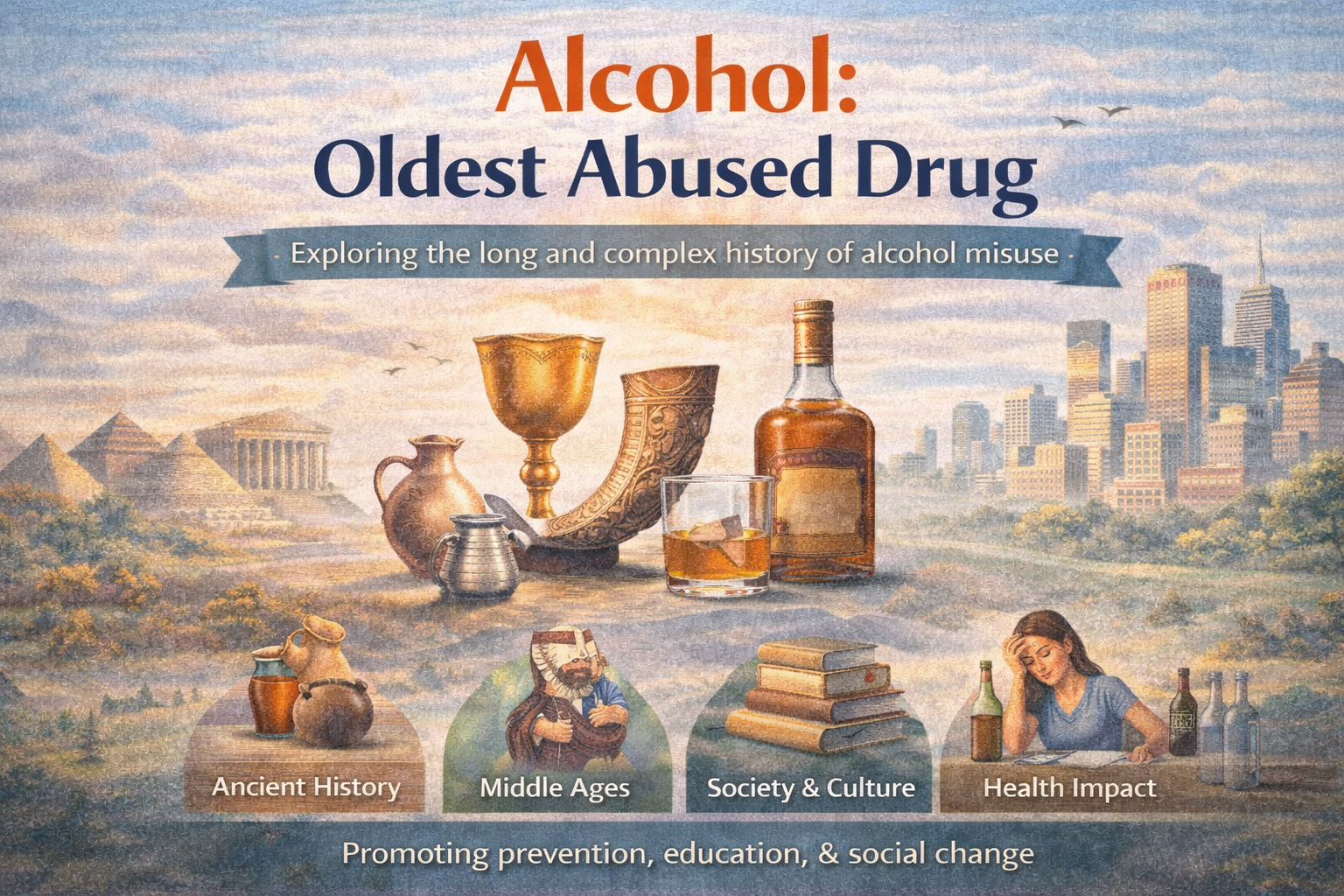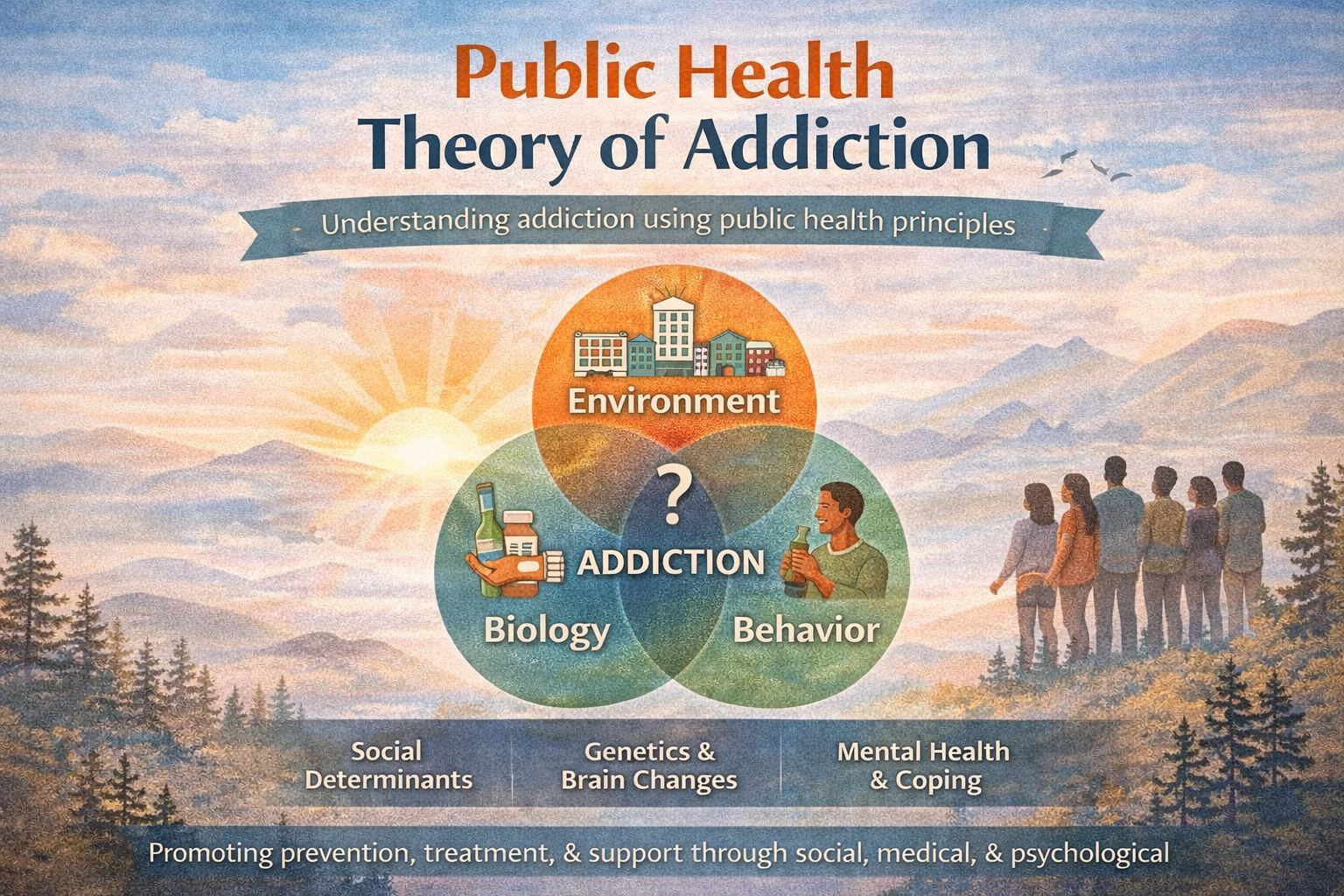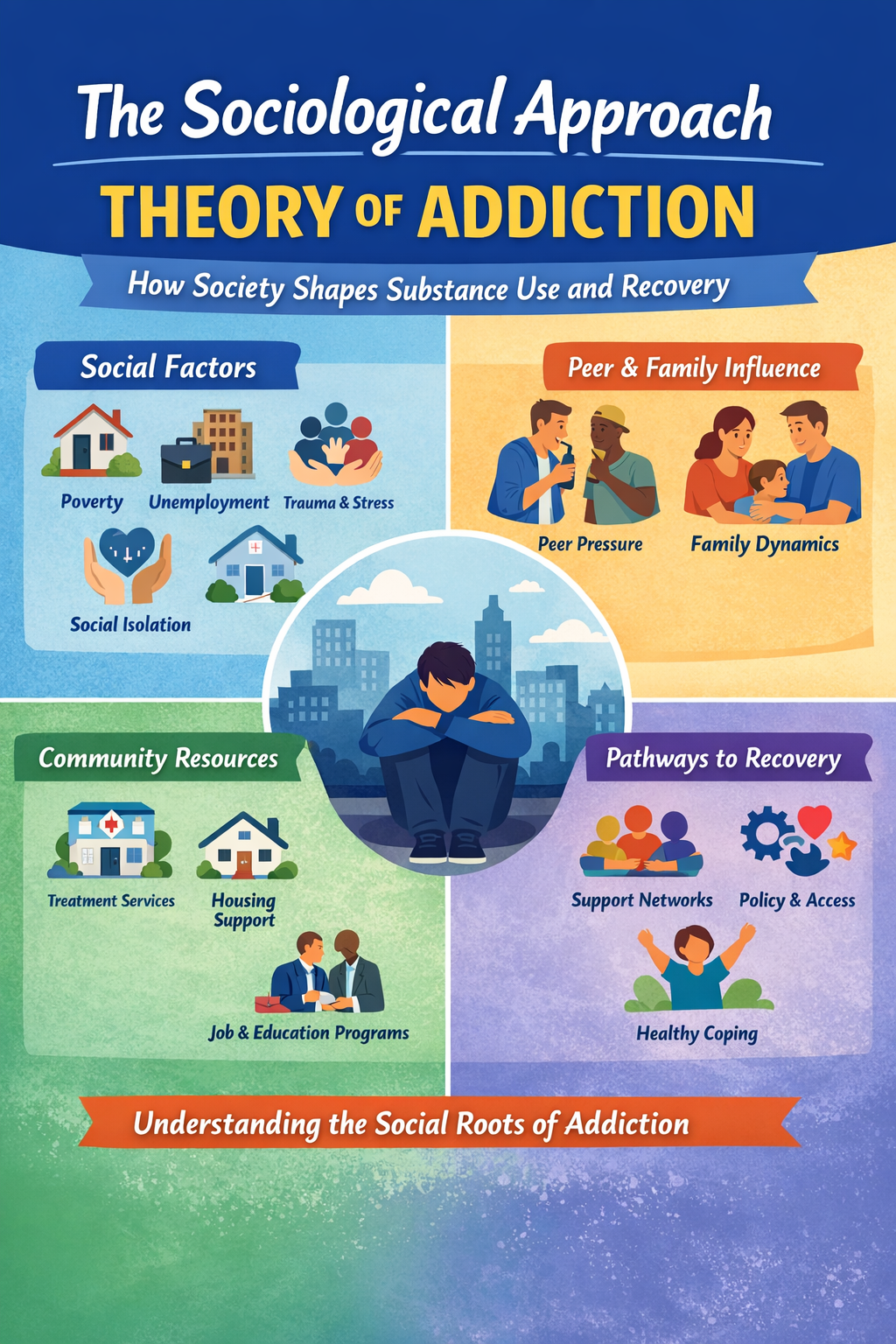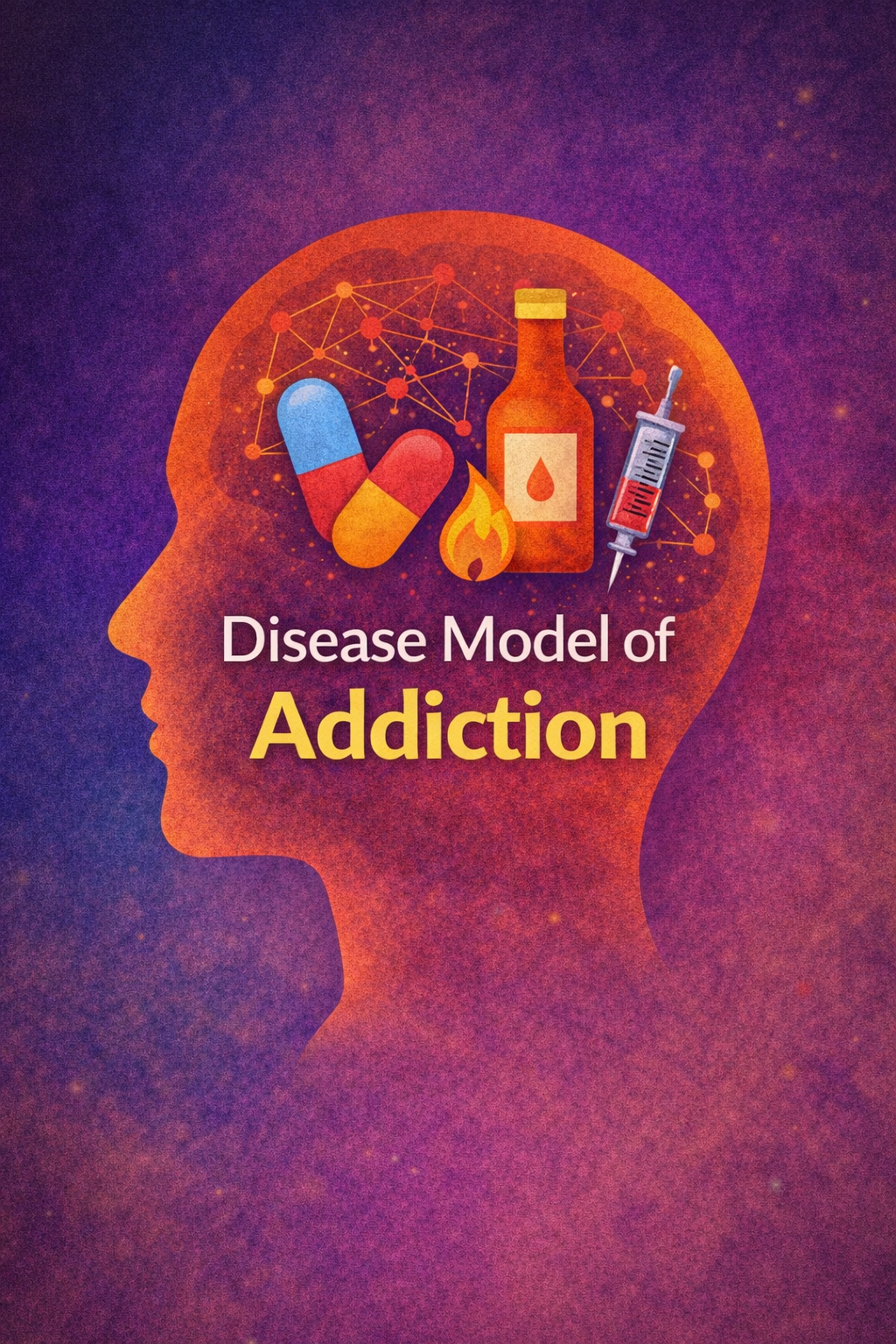“Sober Highs” in Recovery
Finding “sober highs” is an important part of addiction recovery, as it helps individuals rediscover joy, motivation, and fulfillment without substances. Addiction often trains the brain to associate pleasure and relief with substance use, leaving many people worried that life in recovery will feel dull or empty. Sober highs are healthy, natural experiences that activate … Read more
